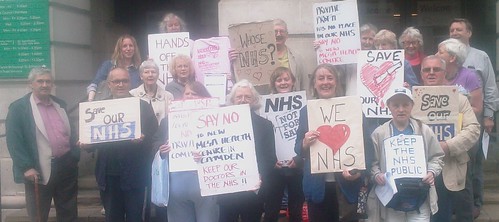The “end of the Roman empire”: it is a popular topic, with some big questions around if: why? How? when? They’ve been some excellent, illuminated books written on it – I reviewed one of them recently – but what tends to disappear in these accounts is the real lived experience of the people of the period. They can’t have been, in their own minds, living through the end of empire – they were living their lives, dealing with the local upsets, expecting the empire which in human timeframes had gone on “forever”, to continue. It’s to attempt to get at something of that lived reality that Giusto Traina has written 428AD: An Ordinary Year At The End of the Roman Empire.
He had to find some way to choose the year, of course, and he selected this one because it marked the end of the Kingdom of Armenia, which just happens to be the author’s special subject. That’s a good start, because it gives him a entirely different perspective to authors traditionally fixated on Constantinope, Rome or Ravenna (the new western capital). Indeed, the perspective here is as broad as could be, for he follows an ancient rhetoric tradition, taking the reader on a journey around the empire, a rough circuit of the Med and beyond, extending even into the Sassanian empire, which that year seized the previously independent Armenia, and along the Silk Road.
He also tries not to look forward, to view the trajectory of everything as heading towards fragmentation and collapse, which of course it wasn’t: something seemed at the time to be coming back together quite nicely after the disaster of the sack of Rome in 410. And although the sources seldom allow us to get down to fine detail, he notes that for most people, these events were irrelevant to their time:
“…the life of a typical community as governed by liturgical and civil calendars and, of course, the ubiquitous seasonal rhythms of the rural economy. For many intellectuals of the time, the calculation of time seemed an inappropriate concern, whose elimination was prompted by the anxiety of the times…the man who was buried in Apamea of Syria in a Christian sepulchre dated to the early fifth century must have requested the ancient pagan motto that appears on its threshold… “Are you rushing? – I am. And where are you rushing? – To this place.”
One man who had no choice but to rush in 428 was Flavius Dionysius, with whom we start our journey. He is starting out from Antioch, HQ of the Roman army in the east, leading an important and complex diplomatic mission to meet a Persian delegation. But he’s suffering facial paralysis. (Traina suggests this might have been stress-related, since he had a difficult task, for a military man – to accept a fait accompli – the loss of independence of Armenia to Persian rule – it had been an important buffer between the two eastern giants.) As Traina explains we only know about his mission because of this, for it is recorded in the life of Simeon Stylites – the famous pole-sitting monk (the stump of his final pole still survives outside Aleppo). The modern author has had to put together the details, for no other western source records the mission, and none pay attention to the fall of Armenia, which Traina suggests reflects embarrassment that a Christian land had been abandoned to its fate.
Flavius is handy for Traina, for no sooner was he back from this tough job than he had another delegate task, to escort the Syrian cleric Nestorius from his monastery to Constantinople, a journey that also allows the author to explore the tensions and developments of the church of the time. Simeon was an outstanding, in more ways than one (his column, from which he never descended, was 9 metres high when Flavius visited – it eventually went to 16), but he represented an extreme of religious ascetism that, Traina says, helped to cement the identity of Syria, which had been an uncertain border province, while shocking the more established regions.
That brings our journey to the heart of the eastern empire, Constantinople, and Traina visits the royal palace, where interestingly, two women were at the heart of politics. One was Pulcheria, the sister of Emperor Theodosius II, and his spiritual guide. The other was his empress, Eudocia, who was from a family of pagan intellectuals and only converted upon marriage, and had a reputation as a protector of heretics. (They had a parallel in the Western empire, the 40-year-old Aelia Galla Placidia, mother of the child emperor, a woman of uncommon political experience, who had briefly been empress in the West, was exiled to Constantinople, taken hostage after the sack of Rome and taken by the Visigoths back to Gaul, where she ended up marrying King Ataulf, who was shortly after murdered, when she returned to Ravenna.)
read more


 About
About